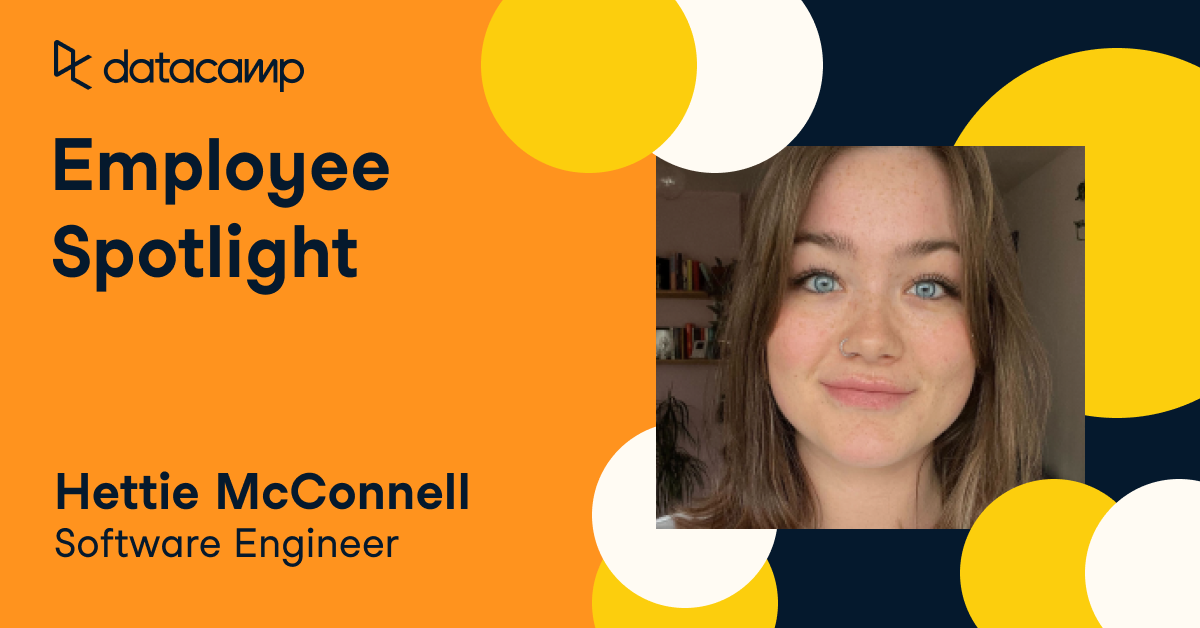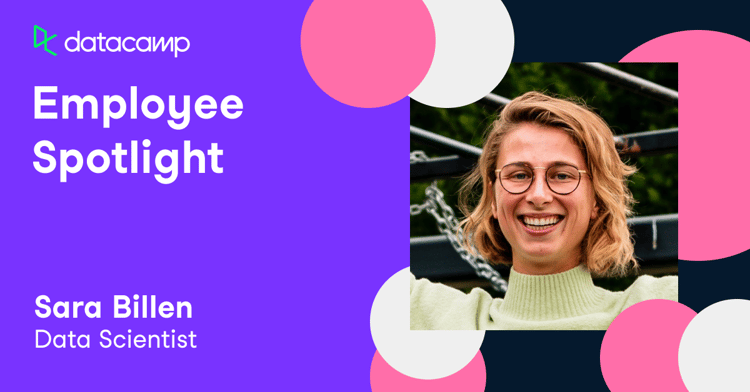
How did you become a software engineer?
I came to engineering a bit later than some as I studied Economics at university. I really enjoyed my time at university and after graduating I quickly entered the job market but found that I was working my way through the wrong jobs. The work wasn’t challenging enough for me so I spoke to my sister, who I really look up to as the head of a software engineer team at a fintech company. She introduced me to people on her team with similar backgrounds as me and they pointed me towards online resources that I could try out for myself. I spent the next couple of months really diving into these resources before deciding that this might actually be the profession for me. It didn’t take long for me to become certain - I quit my job and applied to a 16-week coding boot camp in central London. Unfortunately, because of the pandemic, our cohort had to work mostly online so we missed out in some ways, but it was nice to have a real purpose over this hectic time. Straight after the boot camp, I started working at an AI cybersecurity company and then joined DataCamp a year later.
Did you find it difficult to pick up the skills necessary to become a software engineer?
Yes and no. I’ve always had a knack for maths growing up. My mum was a maths teacher and her enthusiasm was passed on. There are a lot of similarities between engineering and mathematics. The logical steps and processes that you take to solve an engineering problem are very similar to the ones you might take to solve a maths problem. Similarly, if your answer is incorrect, you can bring someone in to review your work. They’ll tell you precisely where you went wrong and how to fix it. This type of logical thinking is what drew me toward engineering and keeps me here. I also find the process of learning these sorts of skills enjoyable which really helps. Software engineering can be difficult, it wasn’t always easy, but being able to crack a hard engineering case just made it that much more fun and satisfying to me.
Why did you decide to join DataCamp?
When I was working at my previous company, I was looking to branch out a little. I’m primarily a JavaScript developer but wanted to get into Python, as well. One of the things I love about software engineering is the complete lack of barriers to entry. There is a huge wealth of really high-quality resources available online for any programming language, not to mention the physical community with weekend and evening meetups for the very basic building blocks of coding. Being short on time (and still in a pandemic) I opted to look for an online platform where I could learn Python easily and take my time with it and came across DataCamp. I tried the introductory course and was immediately sold on it. As I was looking to subscribe, I noticed a box in the corner of the website that said, “We’re hiring.” I found a role that suited my skillset so I applied and it turned out to be a great match. The quality of the software we produce was what drove me to apply here and I’m so glad that I did.
What’s your superpower?
I’ve got a real one-track mind when it comes to problem-solving. It’s all-encompassing. When things get harder at work, it’s all the more motivating to me. I love working with the logical side of my brain. This makes me self-motivated in my job without the need for much external input. My perseverance and organizational skills make me great at what I do.
What is your favourite DataCamp memory or moment?
I’m still quite new and most people, myself included, work primarily from home, so I haven’t had many opportunities to make standout memories. But I do recall my introduction to the company. One of the things that I love about DataCamp is the open-door policy across all levels. Part of this is a biweekly company-wide meeting where everyone is filled in on important company matters. It’s also a nice opportunity to introduce new employees and say goodbye to those leaving. I was asked to introduce myself, which was a rather daunting task as there were a fair amount of people looking at you from your screen. On top of this, I also went after two quite senior new hires. Our new Chief Revenue Officer gave a short, but very inspirational speech about himself and the work he had previously undertaken. The other hire followed suit. As someone who only had one year of experience as a software engineer, I panicked slightly. I had been told all that was needed from me was a quick hello! The only thing going around in my head was my mum’s response when I told her about the new job: “Data and camping - your two favorite things!”—so I said that. I immediately felt a bit silly, but everyone loved it. Lots of people reached out to me over our internal messaging system to say it had made them laugh, ask about me, and really try to connect with me. I really appreciated that, especially as online interactions can feel cold when you’re unable to look people in the eye. The warm welcome has always given me really positive feelings towards the DataCamp family and I really feel comfortable here, so I would have to say that it is my favorite memory so far—but I’m sure as people return to the office there will be many more.
